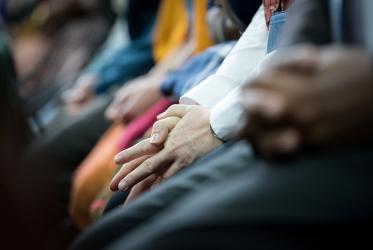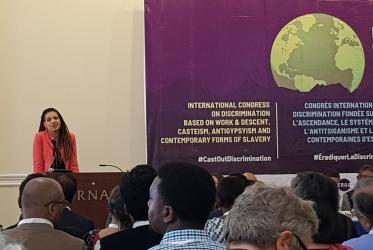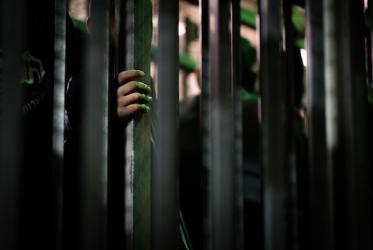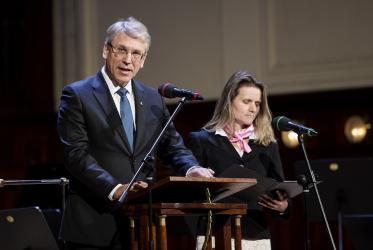Displaying 21 - 40 of 96
Freedom of religion rooted in justice
06 March 2020
On International Human Rights Day, WCC’s work is ever-present
10 December 2019
Peacemakers at work in Sri Lanka
29 April 2019
Fr Alexi - a peacemaker in Syria
21 December 2018
A moment in ‘Time’: an interreligious vision in Erlangen
20 December 2018
WCC general secretary visits churches in Czech Republic
17 December 2018
Walking together against hatred and violence
26 February 2018
WCC general secretary speaks on religion and discrimination
14 February 2017
Churches in Norway and Pakistan break new ecumenical ground
26 January 2017
Tveit offers input at religion and development meeting
03 October 2016















